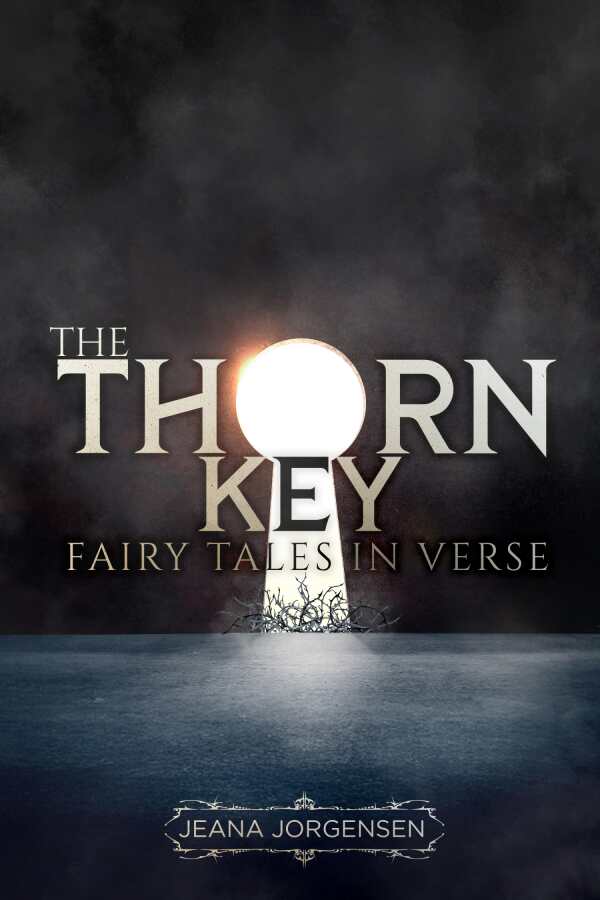
The Thorn Key
Fairy Tales in Verse
Romance and intimacy are not pathways to anyone’s happily-ever-after in the poems of The Thorn Key, whose entries are seamless in reimagining fairy tales in the context of feminist values.
Folklorist Jeana Jorgensen’s muscular poetry collection The Thorn Key entwines fairy tales and contemporary women’s lives in sophisticated free-verse poems.
Fantastic creatures and fairy tales provide the archetypal grist for these commanding poems to transform into contemporary images. The women who inhabit these poems steer clear of passivity and claim their rights to awareness and self-determination. Settings and characters blur together; ancient tales of men and monsters who maim, imprison, and slaughter women and girls proffer instructions for modern women to attain strength, self-empathy, and the power to shape their own realities.
Shaping and reshaping of the past and the present is a recurring motif. The modern practice of ghosting turns into a celebration of self-determination in “Selkies.” The border between these shapeshifter beings and women who ghost dissolves, with both in total control of the deceptions and abandonment they commit, unconcerned with those they’ve fooled and left behind once they’ve “re-skinned themselves, glinting away from the shore.” Elsewhere, archaic fairy-tale diction is intertwined with the language of memes, preserving both contexts. Indeed, the word choices are visual, humorous, lofty, and even sly at times: “So of course I ghosted you. / I mean, not entirely; / I’m not a monster,” says an allegedly human speaker. Many poems feature a similar conversational tone that balances out more academic lines about PDF files and institutional politics.
Emotional authenticity arises from the book’s surprising and visceral imagery. In “The Sleeper Awakened,” a new bride receives jewels so heavy that they are “a cruel pressure that stopped up my throat / and caged my voice.” What she needs, she decides, is a story that will buy her freedom—whose calligraphy spills outside the page and threatens to “dye tassels with its rich blue ink.” Here, and in other poems, symbolism reigns: Jewelry stands for the restraints of patriarchal marriage, and the written word stands for the fluidity needed to escape such restraint. The book’s arrangement into four parts, or “Doors,” also fits the mystical themes of transformation and transition.
The poems are written in free verse, employing occasional rhymes and meters that are musical and satisfying. Individual poems employ natural line and stanza breaks, while occasional enjambment results in propulsion (with a few exceptions, such as the first line of “Secrets,” an otherwise urgent poem whose speaker is in danger like the fairy-tale ogres she identifies with).
The illuminating poems collected in The Thorn Key reenvision familiar cautionary tales, highlighting women of courage who take chances and take charge.
Reviewed by
Michele Sharpe
Disclosure: This article is not an endorsement, but a review. The publisher of this book provided free copies of the book and paid a small fee to have their book reviewed by a professional reviewer. Foreword Reviews and Clarion Reviews make no guarantee that the publisher will receive a positive review. Foreword Magazine, Inc. is disclosing this in accordance with the Federal Trade Commission’s 16 CFR, Part 255.
